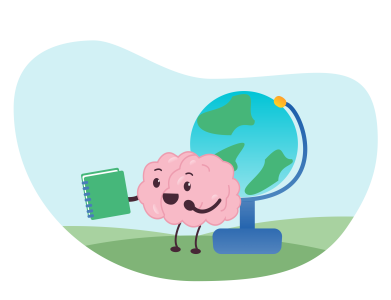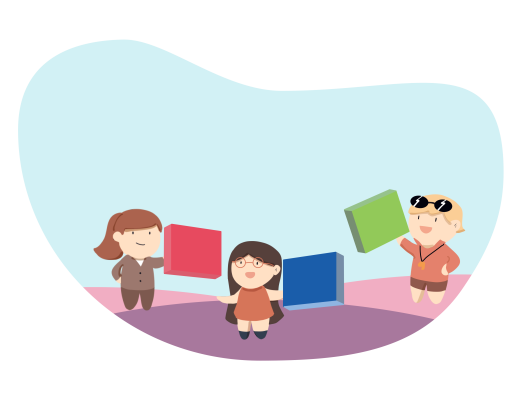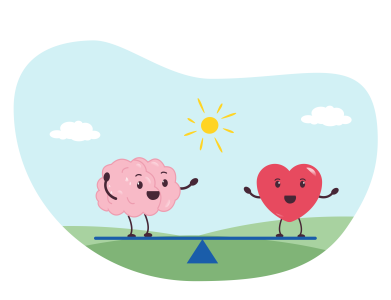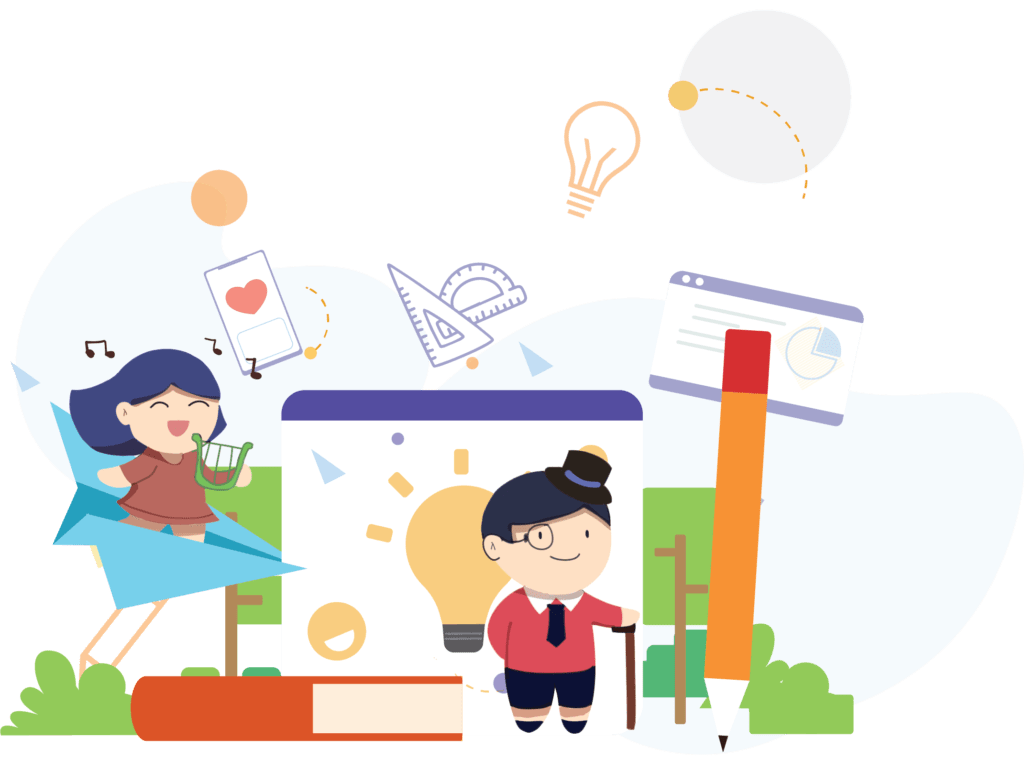This article describes the significant cognitive milestones that occur in children between the ages of one and five. It also explores what parents can do to foster their children’s brain growth.
People usually think of babies as helpless and motionless. There was a common attitude that children were somehow inferior to adults until the turn of the century.
Jean Piaget and other psychologists argued that children and teens think differently than adults. This led to the idea that childhood and adolescence are two different stages of development.
Adults used to be quick to underestimate infants’ and young children’s remarkable intellectual skills, but modern thinkers and researchers have shown that babies are constantly learning, thinking, and exploring the world around them.
Infants, from the moment they are born, begin the process of learning and development. Babies not only learn new things about the world and the people in it, but they also constantly learn new things about themselves.
Cognitive Development

Understanding your child’s developmental milestones can help you better support their learning and development. The maturation of a child’s brain is essential for their success in life. Thinking, learning, exploring, and problem-solving are all part of a child’s brain’s normal development, which this term describes. Other aspects of a child’s growth, such as language and social skills, are also affected.
Cognitive Milestones
Here are the cognitive milestones that occur between the ages of birth and five years old:
From birth to 3 months
Amazing things can happen in a baby’s first three months of life. At this stage of development, infants typically begin exploring their bodies and surroundings through their five senses.
By this period, most newborns have begun to:
- Do things like rooting and sucking near where you plan to nip or bottle-feed.
- Detect subtle changes in volume and pitch.
- Watch the faces of caregivers and other moving objects.
- Observe the entire range of colors that the eye can detect.
- Differentiate among flavors such as sweet, salty, bitter, and sour.
- React to their surroundings by changing their facial expressions.
- Objects can be discerned more clearly at a distance of 13 inches.
From 3 to 6 months
At this early age, a baby’s senses are still in the process of maturing. Babies’ cognitive abilities progress rapidly between the ages of 3 and 6 months. Most infants start to:
- Mimic expressions
- React to common noises.
- Find the familiar faces
- See and react to the emotions in other people’s faces.
From 6 to 9 Months
Trying to understand what an infant is thinking requires a lot of patience and time. After all, researchers can’t exactly pop in and ask a baby what’s on their mind. To better understand how babies’ minds work, scientists have developed a wide variety of novel experiments.
Between the ages of 6 and 9 months, most babies start to:
- Look more intently at something that seems impossible, like a floating object.
- Recognize the differences between images showing varying quantities of objects.
- Learn to tell living things apart from inanimate ones.
- Figure out how far away something is by comparing its size to something else.
From 9 to 12 Months
Growing motor skills allow infants to investigate their environments. Babies’ mental development is mirrored by their physical development as they reach various milestones such as sitting up, crawling, and walking.
As they approach one year of age, most infants can:
- Looking at children’s books is a lot of fun.
- Try to mimic the way people move and make facial expressions.
- Twist things around, try stuffing one thing into another, etc.
- React with facial expressions and noises.
- Get an understanding of the idea of object permanence, or the fact that things exist even when they are hidden from view.
From 1 to 2 years old
The physical, social, and mental growth of children seems to speed up a lot after the age of one. This age group spends a lot of time watching adults, so it’s crucial for parents and teachers to be good role models.
After one year, most children typically:
- Determine which items share common characteristics.
- Try to act and talk like an adult.
- Gain knowledge by wandering around by themselves.
- Highlight well-known details and characters in picture books.
- Use the “I” and “you” pronouns correctly.
- Recognize and react to spoken language.
From 2 to 3 years old
Independence is a growing trait in children at the age of 2. This stage of development equips them with the means to explore the world on their own, so they learn primarily through their own adventures.
Two-year-olds typically can:
- Face the mirror and call themselves by their name.
- Act out more complex adult scenarios (playing house, pretending to do laundry, etc.).
- Use the objects in the correct contexts.
- Identifying picture book elements
- comply with the basic instructions given by caregivers.
- Organize things into classes (i.e., animals, flowers, trees, etc.).
- Line up the rings on the peg from largest to smallest.
From 3 to 4 years old
As they grow, kids are able to make more nuanced observations about the world. As they take in information, they begin to organize it in mental folders called schemas.
Children are becoming much more involved in the learning process, and as a result, they are beginning to ask many more questions. Around this time, “why?” emerges as a core element of questioning.
Typically, by the time they turn three, children can:
- Inquire by asking “why” in order to learn more.
- Be consciously aware of both the past and the present.
- Get educated by watching others and paying attention in class.
- Capable of focusing for at least 5 to 15 minutes.
- Separate things into piles based on their sizes and shapes.
- Try to find explanations for one’s concerns.
- Learn to sort and pair things based on their colors.
From 4 to 5 years old
As kids get closer to starting school, they learn more words, can act more like adults, can count, and learn other preschool skills.
Most 4-year-olds are able to:
- Put words and ideas into pictures.
- Make a sketch of a human figure.
- recognize and name a wide range of colors.
- Rhyme
- Count to five.
- Specify their hometown.
Help Children Achieve Cognitive Milestones
Many parents stress over how to best foster their kids’ mental growth. Children, thankfully, show an innate curiosity for knowledge from a young age.
Educate your child at home.
The relationships a child has with their family, especially their parents and primary caregivers, have the greatest impact on the course of their development in their formative years. Therefore, parents are in a prime position to influence their children’s education and growth.
Get kids excited about learning about the world.
Parents can help their children’s intellectual development by stimulating their curiosity about the world and assisting them in making sense of it. To encourage their infant to learn about the world around them, parents should respond to their child’s senses about what interests them by touching, exploring, and naming the object.
Demonstrate information
If your infant seems particularly interested in a rattle, you could pick it up, put it in her hand, ask, “Does Gracie want the rattle?,” and then shake it to show her what it does.
Encourage exploration
As children get older, parents should encourage them to see the world. You should exercise patience with young kids because they seem to have a million questions about everything. Kids can learn to think of unique solutions to problems if their parents pose similar questions.
Ask a question:
“What do you think would happen if we…” or “What might happen if we…” when confronted with a difficult situation. Parents can help their kids get smarter and feel more independent by encouraging them to use creative ways to solve problems.
In Conclusion
Cognitive Developmental Milestones serve as benchmarks that help parents evaluate whether their child is on track with others of the same age. But parents should keep in mind that their children will grow and develop at their own pace. It’s possible that some mental milestones will appear sooner than others. If you have concerns about your child’s growth, discuss them with his or her doctor.







